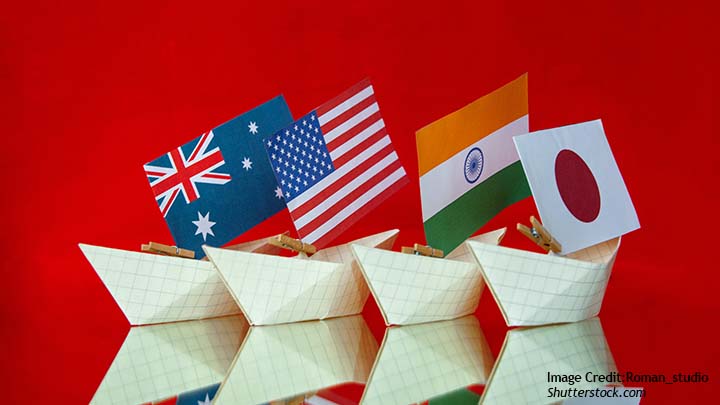How the Quad Can Become More Than an Anti-China Grouping

Jagannath P. Panda
Introduction:
On May 23, before the Quad leaders’ summit in Tokyo, the United States launched the Indo-Pacific Economic Framework (IPEF) with a diverse group of 12 countries initially — Australia, Brunei, India, Indonesia, Japan, the Republic of Korea, Malaysia, New Zealand, the Philippines, Singapore, Thailand and Vietnam. The US-led economic engagement is a salient attempt to allow countries to decouple from Chinese over-dependence in order to ultimately strengthen the existing free and open rules-based global order, which China has been targeting to upend, and re-establish US dominance. That the launch coincided with the Quad summit during President Joe Biden’s visit to Seoul and Tokyo signifies the essence of the Quad and its extension as a “plus” grouping.
You can read the full article on the website of The Indian Express.
Related Publications
-
Jagannath Panda: “India’s INSTC Commitment Is Not Reliant on Western Endorsement”
Interview conducted by Ilya Roubanis, Caucasus Watch The International North-South Transport Corridor (INSTC) is a 7,200km mostly overland network stretching from India to Russia, via Azerbaijan and Iran, branching […]
-
EU-Thailand FTA Negotiations: IUU Fishing and Human Rights Remain Obstacles
Thailand’s fishing industry, which at its height saw as many as 200,000 migrant workers from neighboring Laos, Myanmar, and Cambodia caught in a brutal system of abuse, withered global criticism […]
-
Navigating BRI and Indo-Pacific Strategy: Challenge for South Asian Small States
This paper explores the intersection of China’s Belt and Road Initiative (BRI) and the Indo-Pacific Strategy (IPS) among South Asian Small States, analyzing the interplay between the two initiatives and […]
-
India-Japan-Philippines: A Strategic Maritime Trilateral or More?
Regional states like India, Japan, and the Philippines have been seeking cooperative solutions with other middle powers that can both counter the Chinese influence and fulfill other economic as well […]
-
The Limitations of India and Russia’s Transactional Relationship
Since Russia’s unprovoked invasion of Ukraine in February 2022, it might seem as though ties between India and Russia have strengthened. While much of the West isolated Russia, India-Russia energy […]




